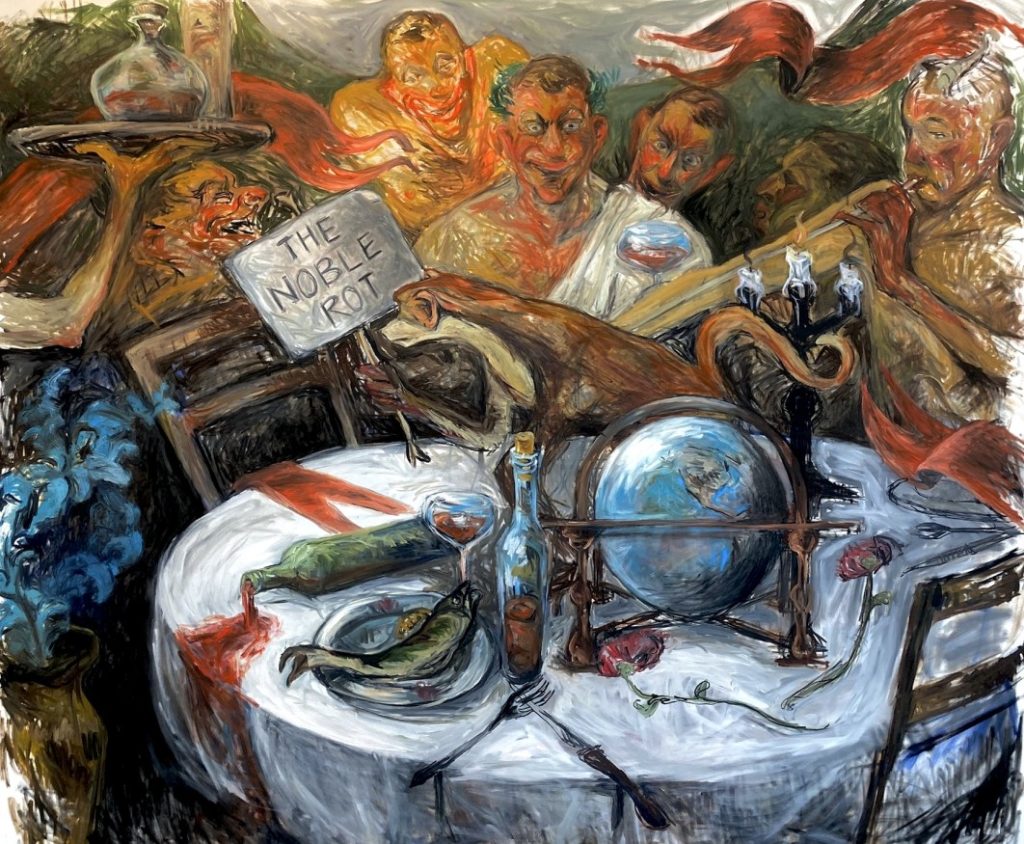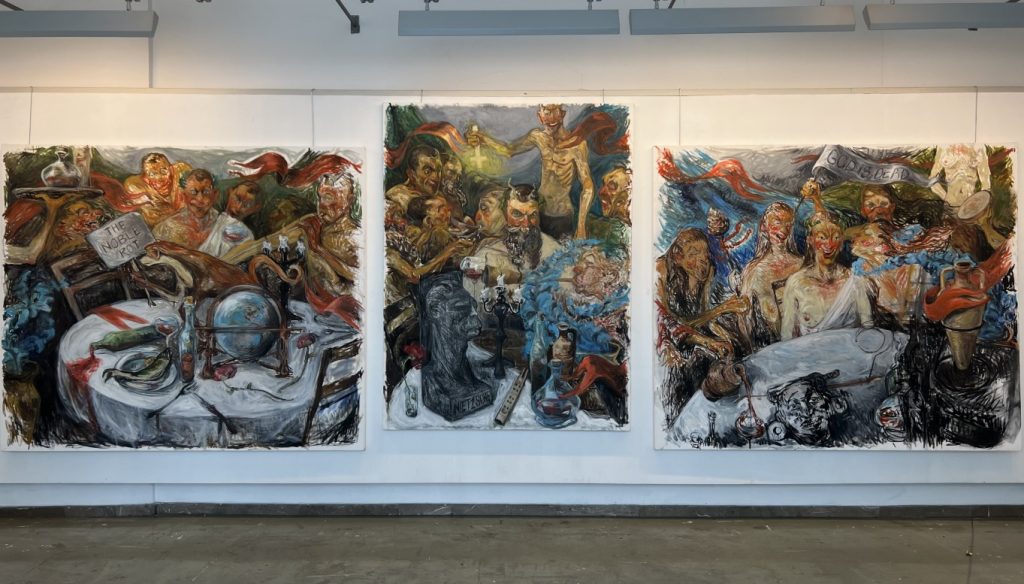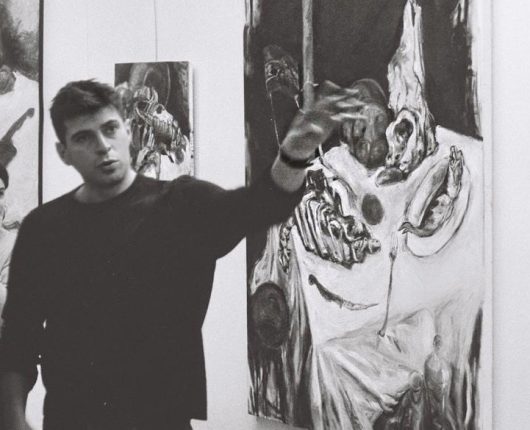MUZAFFER TUNA (İstanbul, 1992)
Mimar Sinan Güzel Sanatlar Üniversitesi, Resim Bölümū
Bacchanalia, 2025
Tuval üzerine yağlıboya, 230×195 cm
Canvas on oil painting, 230×195 cm
Bacchanalia ritüellerinden ilhamla, Dionysos’un coşkusu ve Nietzsche’nin “Tanrı öldü” sözü bir araya gelir. Tanrısız kalan insanın arzularla ve delilikle şekillenen hali, çürümeyle iç içe ironik bir şölene dönüşür. Eser, bireysel ve toplumsal düzeyde kontrolün kaybını,kutsal olanın yokluğunda ortaya çıkan boşluğu, nihilist bir bakış açısıyla irdelemeyi amaçlar.
Inspired by the rituals of the Bacchanalia, the ecstasy of Dionysus and Nietzsche’s dictum, “God is dead,” come together. The state of humanity, shaped by desire and madness, devoid of god, transforms into an ironic feast intertwined with decay. The work aims to explore, from a nihilistic perspective, the loss of control at the individual and societal levels, and the void that emerges in the absence of the sacred.
Sanatçı ve eserle ilgili daha fazla bilgi almak için info@base.ist adresine e-posta atmanızı rica ederiz.
Bacchanalia ritüellerinden ilhamla, Dionysos’un coşkusu ve Nietzsche’nin “Tanrı öldü” sözü bir araya gelir. Tanrısız kalan insanın arzularla ve delilikle şekillenen hali, çürümeyle iç içe ironik bir şölene dönüşür. Eser, bireysel ve toplumsal düzeyde kontrolün kaybını,kutsal olanın yokluğunda ortaya çıkan boşluğu, nihilist bir bakış açısıyla irdelemeyi amaçlar.
Inspired by the rituals of the Bacchanalia, the ecstasy of Dionysus and Nietzsche’s dictum, “God is dead,” come together. The state of humanity, shaped by desire and madness, devoid of god, transforms into an ironic feast intertwined with decay. The work aims to explore, from a nihilistic perspective, the loss of control at the individual and societal levels, and the void that emerges in the absence of the sacred.
Sanatçı ve eserle ilgili daha fazla bilgi almak için info@base.ist adresine e-posta atmanızı rica ederiz.


